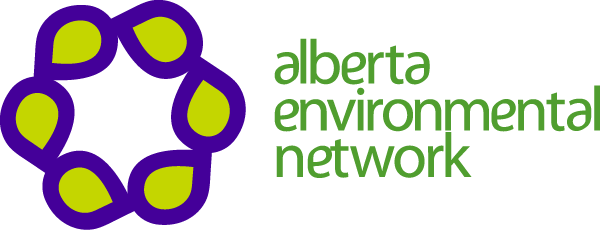News Release: February 28, 2007
Internal government documents regarding energy company EnCana's activities inside Canadian Forces Base Suffield, including a federally protected National Wildlife Area (NWA), reveal a disturbing story of environmental degradation and non-compliance, says a coalition of environmental groups. The groups are asking the federal government to prohibit all new industrial activities in the Suffield NWA.
The internal documents, many obtained through the Access to Information Act, show "significant shortcomings" in the energy industry's environmental record, including that of industry giant EnCana, which is
seeking to expand its activities in the NWA. The Suffield NWA is a 458 km2 protected area located inside the 2,690 km2 Canadian Forces Base near Medicine Hat, Alberta.
"Prime Minister Stephen Harper has told Canadians they deserve large tracts of unspoiled wilderness that will preserve our precious flora and fauna. We would like him to start with protecting the NWA," says Cliff Wallis, Alberta Wilderness Association Past-President. The Suffield NWA is an internationally significant grassland encompassing fragile sand dunes and sand plains. It provides secure habitat for more than 1,100 native prairie species, including 13 federal Species at Risk and 78 provincially listed "at risk" species.
The documents revealed that an audit of a so-called "minimal disturbance" shallow gas infill drilling program in Koomati, an area of the Suffield military base on the east side of the South Saskatchewan River, found significant impacts on native grassland, including: multiple access routes to wells, significant disturbance at lease sites, disregard for species at risk, improper waste management and lack of promised monitoring. The Spring 2005 audit, which included work by a qualified biologist from the Base, concluded that Koomati has suffered significant environmental impact from the winter drilling of 104 shallow gas wells. The documents acknowledge that Koomati is experiencing environmental decline due to increased industrial activity.
A 2005 environmental incident report sent by the Base to industry operating in CFB Suffield spoke of "significant shortcomings" that "run counter to industry guidelines and standard practices" and had a strong rebuke of the industry for the shortcomings. "EnCana is asking that Canadians trust that it has the environment's interests at heart, but the record shows this is not the case. Instead, it appears that EnCana is treating endangered species and their habitat as an obstacle," says Dawn Dickinson of the Grasslands Naturalists.
EnCana is seeking a permit from the federal government to drill 1,275 shallow gas wells and construct over 220 km of pipelines inside Suffield NWA. The proposed project is slated to go to a panel review later this year and the company is currently working on an Environmental Impact Assessment (EIA) as part of the requirements under the Canadian Environmental Assessment Act.
However, the documents show that EnCana resisted the environmental assessment process. EnCana did
not want their project to go to a panel review and it pressured Ottawa to streamline the approval process
so drilling could occur before the end of 2005 without completing a proper environmental review. The company
then applied to drill three new wells in the NWA after their original proposal to drill 1,275 wells had already
begun a federal EIA. A 265-metre gas pipeline was constructed within the NWA without a permit.
"Does Canada really want to set the dangerous precedent of granting a permit for development inside a federally protected area, and risk rendering the very concept of 'protected area' meaningless, particularly when there seems to be little assurance that such development will be done in an environmentally responsible way?" asks Julie Gelfand, Nature Canada President.
The documents also showed:
- " oil and gas activity is having significantly more impact than military training including habitat fragmentation, spread of invasive species, inappropriate reclamation practices and lack of recovery observed in majority of areas;
- " ill-defined operational and environmental protocols lacking appropriate direction;
- " outdated agreements between the Base and industry;
- " violation of guidelines such as minimum disturbance techniques;
- " inadequate industry environmental reviews of projects and wellsites (an audit of 150 wells found half of them failed environmental protocol); and
- " industrial waste and site cleanup issues.
- " a review of the 2005 oil and gas program was cut short and industry was given "silent authority" to proceed.
- " about one third of the documents received through Access to Information were blanked out.
"These revelations are a damning indictment of energy industry activity in an area of international
environmental significance," says Sandra Foss, President, Federation of Alberta Naturalists. "This reinforces our call to halt all industrial activity in the most sensitive land-the Suffield National Wildlife Area. The federal government should just say no!"
Coalition members include:
- Alberta Wilderness Association,
- Federation of Alberta Naturalists,
- Grassland Naturalists,
- Nature Canada,
- Southern Alberta Group for the Environment, and
- World Wildlife Fund.
For more information, contact:
Cliff Wallis, Alberta Wilderness Association:
403-271-1408, www.albertawilderness.ca
Dawn Dickinson, Grasslands Naturalists:
403-526-6443
Daniel Casselman, Nature Canada:
613-562-3447, Ext 225, www.naturecanada.ca
Sandra Foss, Federation of Alberta Naturalists:
403-932-2947, www.fanweb.ca
